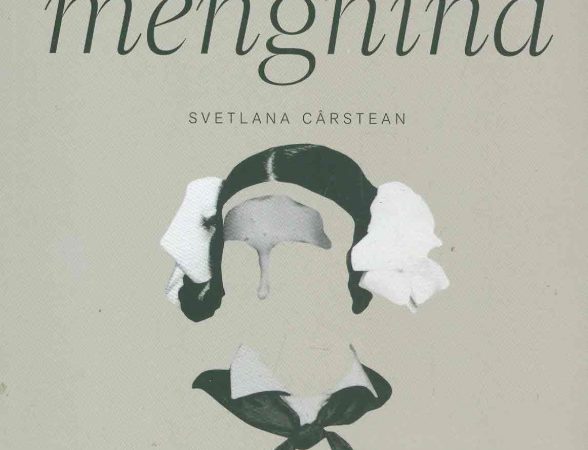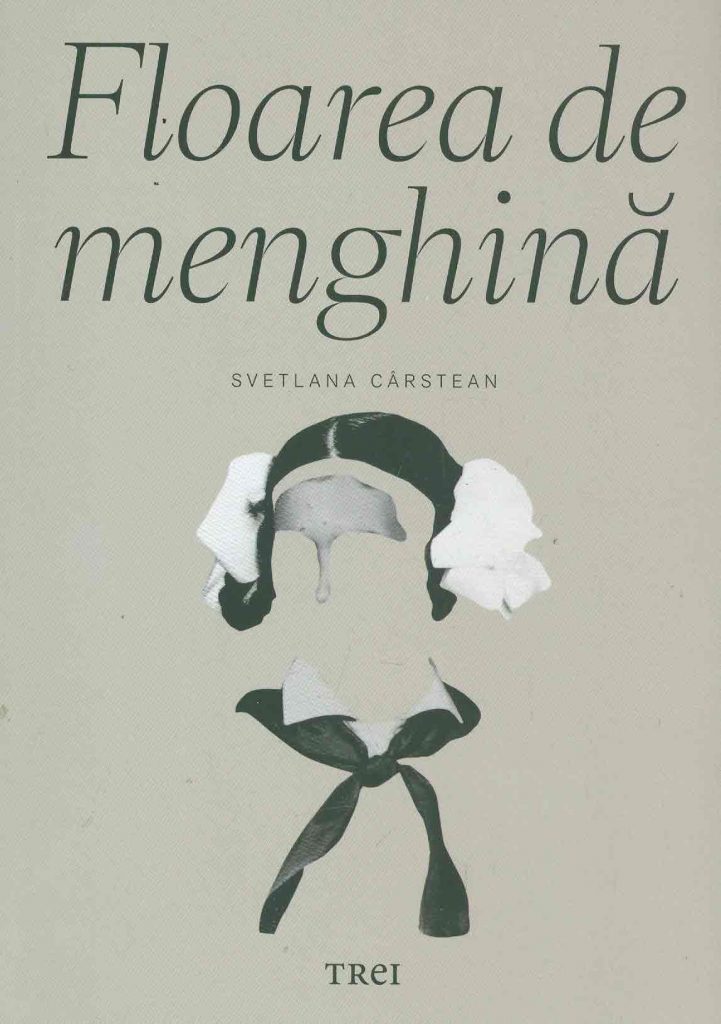SVETLANA CÂRSTEAN made her debut in 1995 in the collective book Family Portrait (Tablou de familie) among T.O. Bobe, Răzvan Rădulescu, Mihai Ignat, Sorin Gherguț and Cezar Paul-Bădescu. Her individual debut, The Vise Flower (Floarea de menghină) in 2008, for which she was awarded with The Poetry debut prize from the Romanian Writers Union, The Debut prize from the România literară magazine etc. One of her recent major poetry projects is called Trado, written with Athena Farrokhzad published in Sweden at Albert Bonnier and translated into the Romanian in 2016 at Nemira Publishing House. Her poems have been translated into German, Italian, French etc., and can be read here A new girl in town (I) (Svetlana Cârstean)
What the worker reminisces
I only went with my vise flower.
The evil are separated from the good.
The punishment is hard and from the bad cobbler the last will be taken.
From the turner the lathe will be taken.
From the gardener the shovel will be taken.
And from all evil ones the protective equipment.
For me, who seems to have be more good than evil, God has built a light home, suspended in the mass of shiny homes, hung in line in a perfect order, just like the clothing put to dry or, rather, like birds on abacuses in kindergarten.
My vise flower and I were supposed to sit so peaceful and happy, no one knows how long and it did not even matter. This happiness marched towards me menacingly and I already knew I will not bear it.
After a while, doubt and unrest crossed my mind more and more often.
I considered myself more of a slave than of a happy man. I wanted to quit every passing moment.
I had become a stranger from my vise flower who awaited me shy and as always consoled in a corner of our hung and with endless windows.
Just as I was on the brink of desperation, God looked upon me gently.
He had mercy on my and His hands, frail and thin but colored in thousands of colors like the petals of flowers indicated the way home. Then everything vanished. The workshop welcomed me, cozy as ever. God continued to look mercifully at me so I felt nothing when I arrived back.
■
On the green lawn of the workbench this flower blooms with an pervasive green.
It will humiliate you and will whip you merciless, for hours on end, until you will see it crumbling down with its olive body, almost shiny, tempting, round and very ripened.
■
I now confess that the vise flower has turned me into a slave.
Roxanne keeps me in her unforgiving snare from which no one can escape.
Bîrzoieș endlessly laughs showing me with by the finger.
Chiribuță cries and encourages me to flee.
The worker keeps lecturing me about the endless patience, and Oblomov about the endless love.
“All the hallway you will wash before leaving if you do not decide to run once and for all!”
“Take her from where she is and sew her neatly, impeccably on the chest. This is from now on your number and without it no one will take you in. All the institutions and schools, all the kindergartens of the nation will be closed to you.”
“You, the intellectuals, should be more receptive to our problems.
Learn from the art of deserters!”
For the good of our nation I have invented the vise flower, for the beauty of schools, workshops and her institutions. Due to me, along the boring hallways, on the window sills, in the flower pots will be put vise flowers. When they will go out to stroll through gardens and parks, all shall rejoice at the sight of the countless layers of vise flower calling every name under the sun.
Everyone will learn the new and true face of the nation.
The face of the vise flower.
——————————————————————————————————————
Ce povestește muncitorul
Eu n-am mers decît cu floarea mea de menghină.
Cei răi sînt despărțiți de cei buni.
Pedeapsa e mare și cizmarului rău i se va lua calapodul.
Strungarului rău i se va lua strungul.
Grădinarului rău i se va lua sapa.
Și tuturor echipamentul de protecție.
Mie, care se pare că am fost mai mult bun decît rău, Dumnezeu mi-a construit o căsuță ușoară, suspendată în mulțimea de căsuțe luminoase, atîrnate la rînd într-o ordine desăvîrșită, precum rufele la uscat sau, mai degrabă, precum rîndunelele pe numărătoare la grădiniță.
Eu cu menghina mea urma să stăm așa liniștiți și fericiți, nu se știe cît și nici nu avea importanță. Fericirea asta înainta spre mine amenințător și știam deja că n-am s-o pot îndura.
După o vreme, îndoiala și nerăbdarea mă încercau tot mai des.
Mă consideram mai mult sclav decît fericit. În orice clipă voiam să renunț.
Mă înstrăinasem pînă și de menghina mea care aștepta stingheră și ca
întotdeauna consolată într-un colț al căsuței noastre suspendate și cu ferestre nesfîrșite.
Tocmai atunci cînd eram în pragul disperării, Dumnezeu m-a
privit blând.
S-a îndurat de mine și mîinile Lui, subțiri și fragile, dar colorate în mii de culori ca petalele florilor, îmi indicau drumul de întoarcere.
Atunci totul a dispărut. Atelierul m-a primit, călduț ca de obicei.
Dumnezeu se uita în continuare atît de blînd la mine, încît n-am
simțit nimic la sosire.
■
În gazonul verde al bancului de lucru înflorește floarea aceasta de un
verde intens.
Ea te va umili și te va biciui fără milă, ore la rînd, pînă cînd o vei
vedea năruindu-te cu trupul ei măsliniu, aproape lucios, isptitor,
rotund și foarte copt.
■
Mărturisesc acum că floarea de menghină m-a preschimbat în sclav.
Roxana mă ține în lațul ei neiertător de care nimeni nu scapă.
Bîrzoieș rîde întruna arătînu-mă cu degetul.
Chiribuță plînge și mă îndeamnă să fug.
Muncitorul îmi ține discursuri despre nesfîrșita nerăbdare, iar
Oblomov despre nesfîrșita iubire.
„Tot holul îl vei spăla la plecare dacă nu te hotărăști să fugi o dată
pentru totdeauna!”
„Ia-o de unde e și coase-o frumos, impecabil în piept. Acesta e de
acum numărul tău și fără el nimeni nu te va primi. Toate instituțiile
și școlile, toate grădinile patriei vor fi închise pentru tine.”
„Voi, intelectualii, ar trebui să fiți mai receptivi la probleme noastre.
Învățați din arta dezertorilor!”
Pentru binele patriei am inventat floarea de menghină, pentru
frumusețea școlilor, atelierelor și instituțiilor ei. Datorită mie, de-a
lungul holurilor plicticoase, pe pervazuri, vor sta în ghivece flori de
menghină. Cînd vor ieși la plimbare în grădini și în parcuri, toți se
vor bucura de priveliștea nenumăratelor straturi de menghină
așezate în fel și chip.
Toți vor afla noul și adevăratul chip al patriei.
Chipul florii de menghină.


